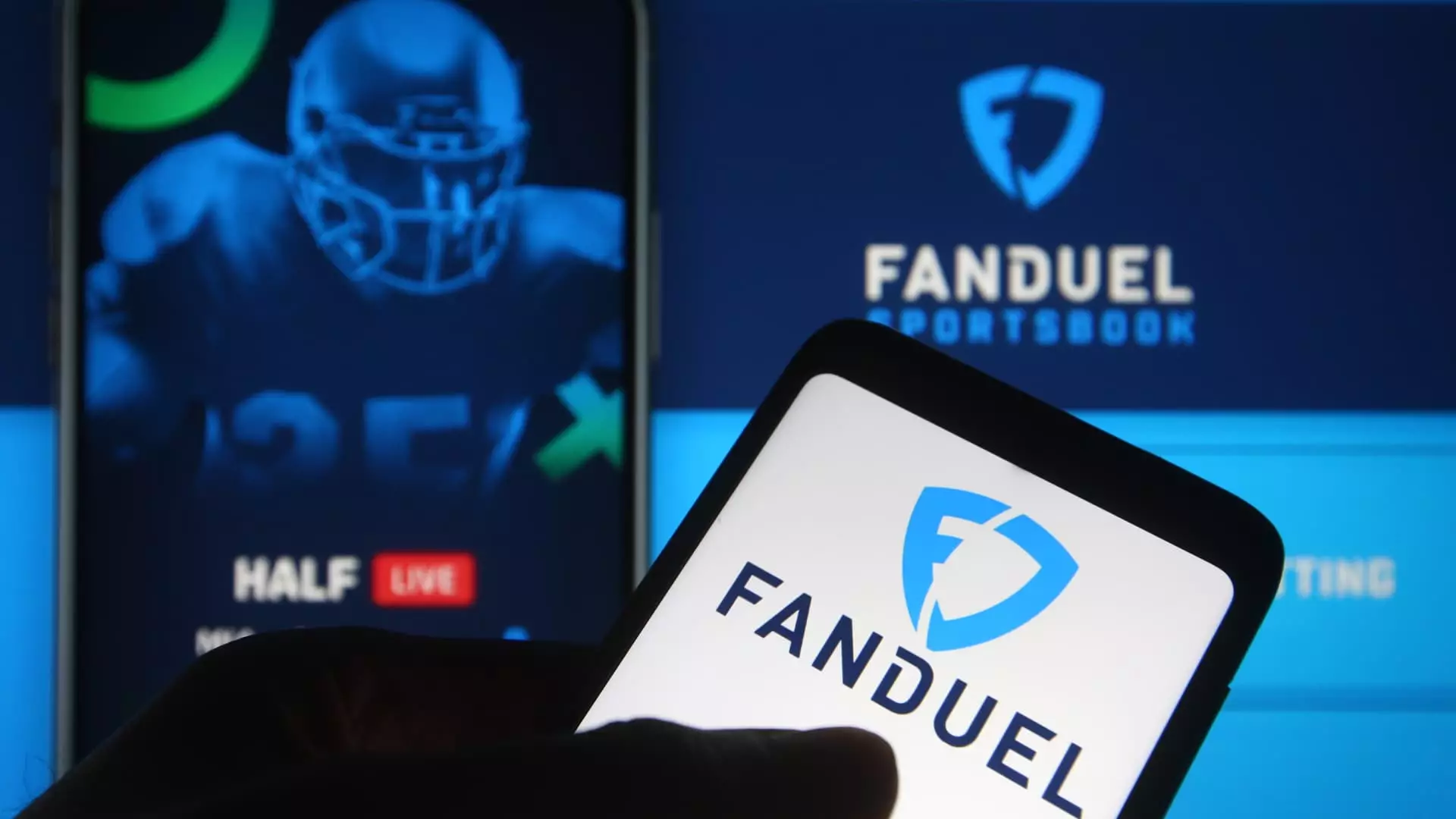The sports broadcasting landscape is undergoing transformative changes, particularly with Diamond Sports’ recent transition into a new era marked by its partnership with FanDuel. As regional sports networks (RSNs) adapt to shifting audience demands and technological advancements, the rebranding of the Bally Sports channels serves as a pivotal moment in this ongoing evolution. This article delves into the implications of this partnership, examining its potential impact on both Diamond Sports and the realm of sports broadcasting as a whole.
Diamond Sports recently filed court papers detailing a strategic agreement with FanDuel, the leading name in sports betting owned by Flutter Entertainment. As the NHL season kicks off and the NBA’s 2024-2025 campaign looms, the timing of this partnership could not be more significant. FanDuel’s introduction as the naming rights partner for these regional sports networks is not merely cosmetic; it symbolizes a deeper integration between sports broadcasting and online gaming.
This agreement encompasses the possibility for FanDuel to acquire up to 5% equity in the reorganized Diamond Sports entity and performance warrants for an additional 5%. The potential for FanDuel to secure a stake in Diamond speaks volumes about the increasing interconnection between sports media and sports betting, pushing the envelope further into a new frontier where both sectors can thrive cohesively.
For Diamond Sports, this partnership is a critical step towards financial recovery and stability following its tumultuous bankruptcy proceedings. With Diamond Sports reporting plans to emerge from bankruptcy protection as early as December, the new alliance with FanDuel provides both financial lifelines and enhanced visibility as the company navigates through complex negotiations with major sports leagues like the NBA, NHL, and MLB.
Despite previous relations with Bally’s Corp, which ended due to significant corporate restructuring, this latest endeavor with FanDuel highlights Diamond’s commitment to aligning its operational strategies with current market leaders. Throughout its bankruptcy, Diamond faced continued challenges, prompting numerous teams across various leagues to exit the networks. This volatility warrants close scrutiny, as the continued viability of RSNs hinges on their ability to retain loyalty from both sports franchises and their viewers.
The regional sports networks industry is no stranger to disruption, evidenced by the exodus of teams searching for alternative broadcasting options. With Diamond Sports planning to drop all but one MLB team, the Atlanta Braves, it raises questions about the future viability of other franchises previously associated with the network. The extensive operational challenges facing Diamond further reveal the precarious balance between lucrative broadcasting deals and maintaining relationships with MLB teams.
Moreover, the rise of alternative local viewing options has drastically reshaped the way audiences consume games. Major League Baseball — which has recently taken over production of local games for various teams — is adapting to new paradigms as franchises seek greater independence from traditional RSN agreements. As the shift to over-the-top streaming services like Victory+ grows, it becomes increasingly essential for RSNs to reevaluate their value propositions.
As Diamond Sports moves forward under the potential leadership of FanDuel, it must navigate a changing landscape where consumer preferences are shifting towards immediate access and interactive viewing experiences. This partnership not only aims to bolster operational efficacy but also seeks to engage the next generation of sports fans who prioritize technology-driven interactions.
As this collaboration unfolds, it will be crucial for Diamond Sports to focus on fan engagement strategies that integrate digital solutions and enhance viewer experience. The convergence of sports betting and broadcasting opens a dialog about how fans engage with their teams, potentially transforming the viewing experience into a more immersive one.
Diamond Sports’ pivot towards FanDuel represents a significant change in the fabric of regional sports broadcasting. While the implications of this partnership remain to be seen, it signals a larger trend towards collaboration in an industry that must evolve to meet contemporary demands. The crossroads at which Diamond Sports stands presents both challenges and opportunities in the rapidly changing world of sports media.

